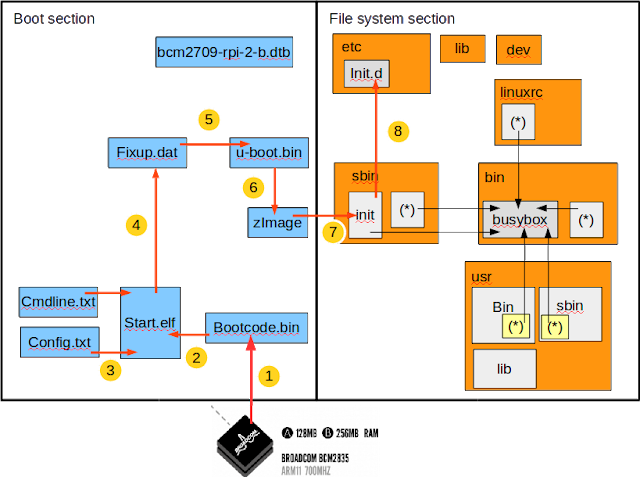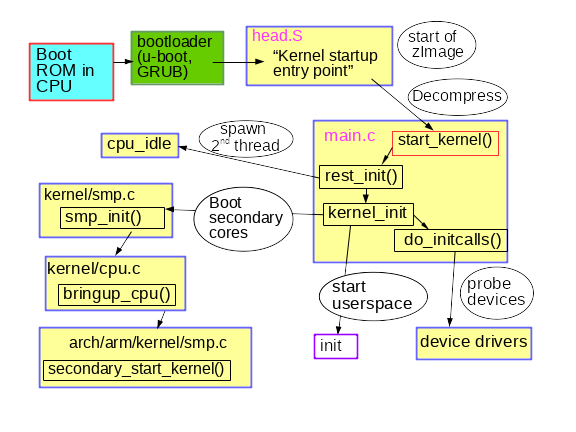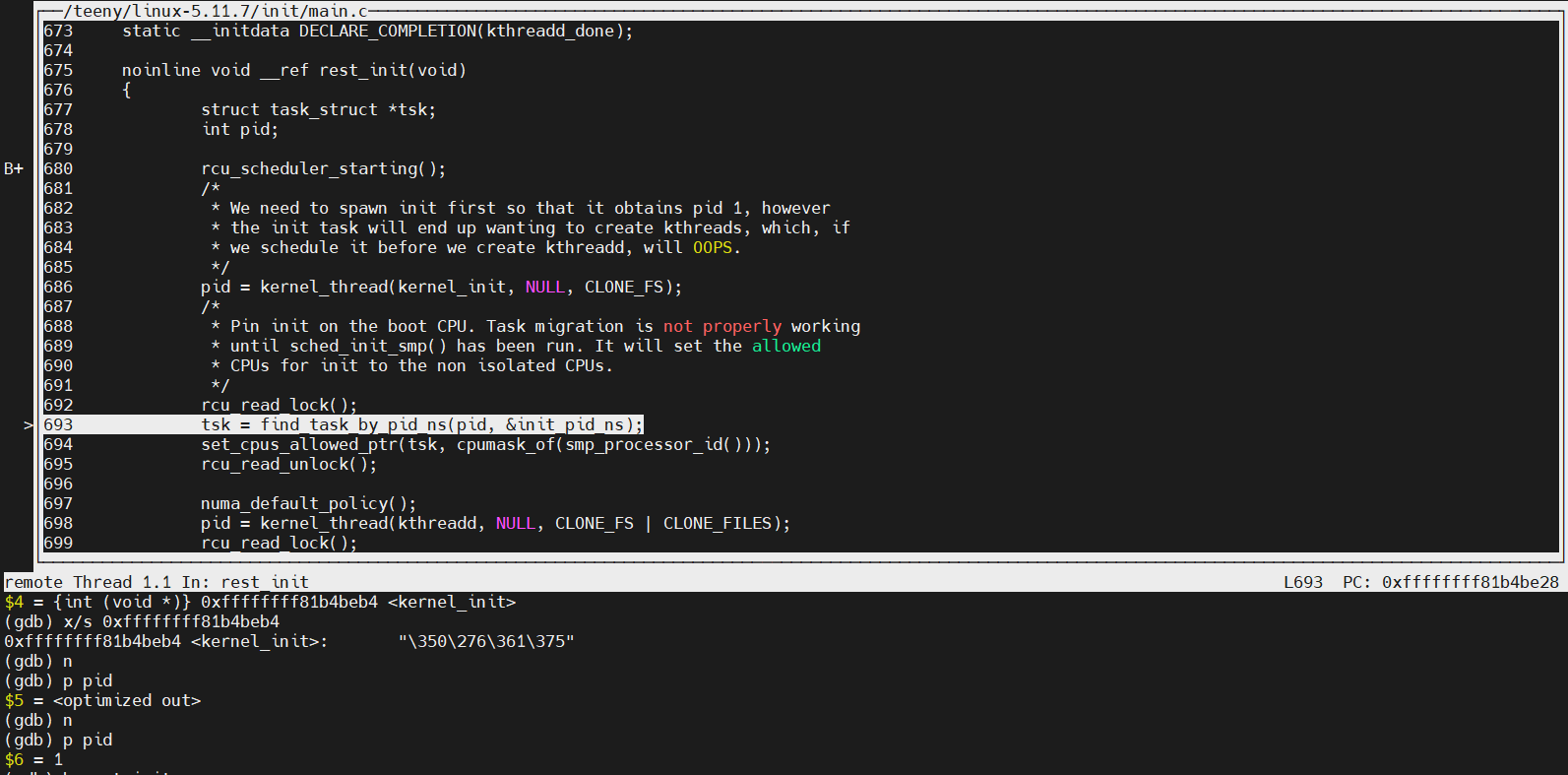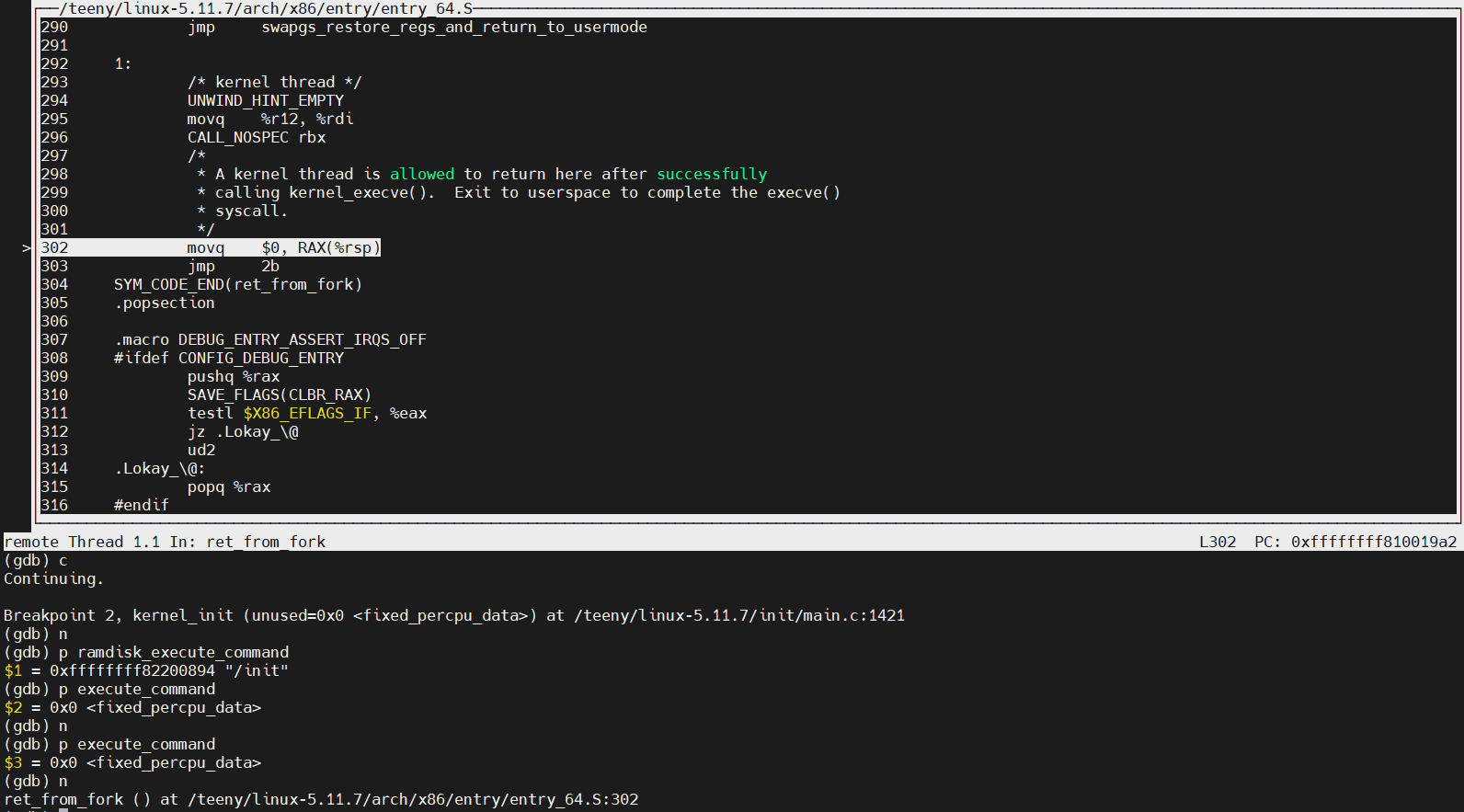Kernel Tracing Chapter 1 - Boot Up
Kernel Tracing Chapter 1 - Boot Up
How Boot Operate
Breaking Point1 - Start_Kernel
asmlinkage __visible void __init __no_sanitize_address start_kernel(void)
{
char *command_line;
char *after_dashes;
set_task_stack_end_magic(&init_task);
smp_setup_processor_id();
debug_objects_early_init();
cgroup_init_early();
local_irq_disable();
early_boot_irqs_disabled = true;
boot_cpu_init();
page_address_init();
// Sooooo many init prepare workload.
cpuset_init();
cgroup_init();
taskstats_init_early();
delayacct_init();
poking_init();
check_bugs();
arch_call_rest_init(); // -> function who call rest_init();
prevent_tail_call_optimization();
}
Function rest_init is where kernel spawn the first thread to execute init program. So far we are still in kernel space, and we are about to step into next stage by following the function call to kernel_init.
noinline void __ref rest_init(void)
{
struct task_struct *tsk;
int pid;
rcu_scheduler_starting();
/*
* We need to spawn init first so that it obtains pid 1, however
* the init task will end up wanting to create kthreads, which, if
* we schedule it before we create kthreadd, will OOPS.
*/
pid = kernel_thread(kernel_init, NULL, CLONE_FS);
/*
* Pin init on the boot CPU. Task migration is not properly working
* until sched_init_smp() has been run. It will set the allowed
* CPUs for init to the non isolated CPUs.
*/
rcu_read_lock();
tsk = find_task_by_pid_ns(pid, &init_pid_ns);
set_cpus_allowed_ptr(tsk, cpumask_of(smp_processor_id()));
rcu_read_unlock();
numa_default_policy();
pid = kernel_thread(kthreadd, NULL, CLONE_FS | CLONE_FILES);
rcu_read_lock();
kthreadd_task = find_task_by_pid_ns(pid, &init_pid_ns);
rcu_read_unlock();
/*
* Enable might_sleep() and smp_processor_id() checks.
* They cannot be enabled earlier because with CONFIG_PREEMPTION=y
* kernel_thread() would trigger might_sleep() splats. With
* CONFIG_PREEMPT_VOLUNTARY=y the init task might have scheduled
* already, but it's stuck on the kthreadd_done completion.
*/
system_state = SYSTEM_SCHEDULING;
complete(&kthreadd_done);
/*
* The boot idle thread must execute schedule()
* at least once to get things moving:
*/
schedule_preempt_disabled();
/* Call into cpu_idle with preempt disabled */
cpu_startup_entry(CPUHP_ONLINE);
}
In the if-else statement, ramdisk_execute_command or /init was mounted to initial proccess from the extracted CPIO archive, or initramfs that we’d been explained in last article.
static int __ref kernel_init(void *unused)
{
int ret;
kernel_init_freeable();
async_synchronize_full();
kprobe_free_init_mem();
ftrace_free_init_mem();
free_initmem();
mark_readonly();
pti_finalize();
system_state = SYSTEM_RUNNING;
numa_default_policy();
rcu_end_inkernel_boot();
do_sysctl_args();
if (ramdisk_execute_command) {
ret = run_init_process(ramdisk_execute_command); // -> ramdisk_execute_command = '/init'
if (!ret)
return 0;
pr_err("Failed to execute %s (error %d)\n",
ramdisk_execute_command, ret);
}
if (execute_command) {
ret = run_init_process(execute_command);
if (!ret)
return 0;
panic("Requested init %s failed (error %d).",
execute_command, ret);
}
if (CONFIG_DEFAULT_INIT[0] != '\0') {
ret = run_init_process(CONFIG_DEFAULT_INIT);
if (ret)
pr_err("Default init %s failed (error %d)\n",
CONFIG_DEFAULT_INIT, ret);
else
return 0;
}
if (!try_to_run_init_process("/sbin/init") ||
!try_to_run_init_process("/etc/init") ||
!try_to_run_init_process("/bin/init") ||
!try_to_run_init_process("/bin/sh"))
return 0;
panic("No working init found. Try passing init= option to kernel. "
"See Linux Documentation/admin-guide/init.rst for guidance.");
}
This post is licensed under CC BY 4.0 by the author.




